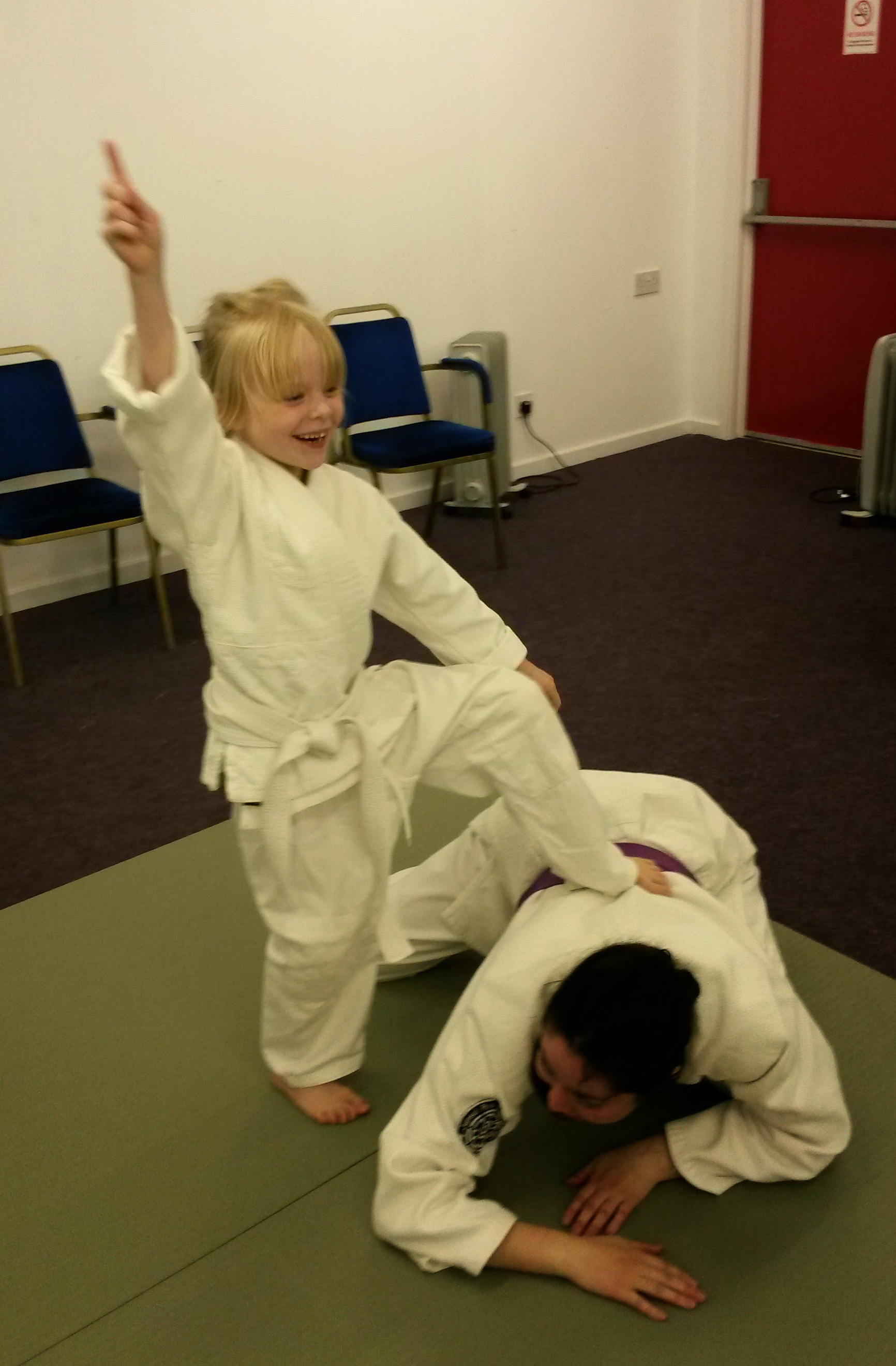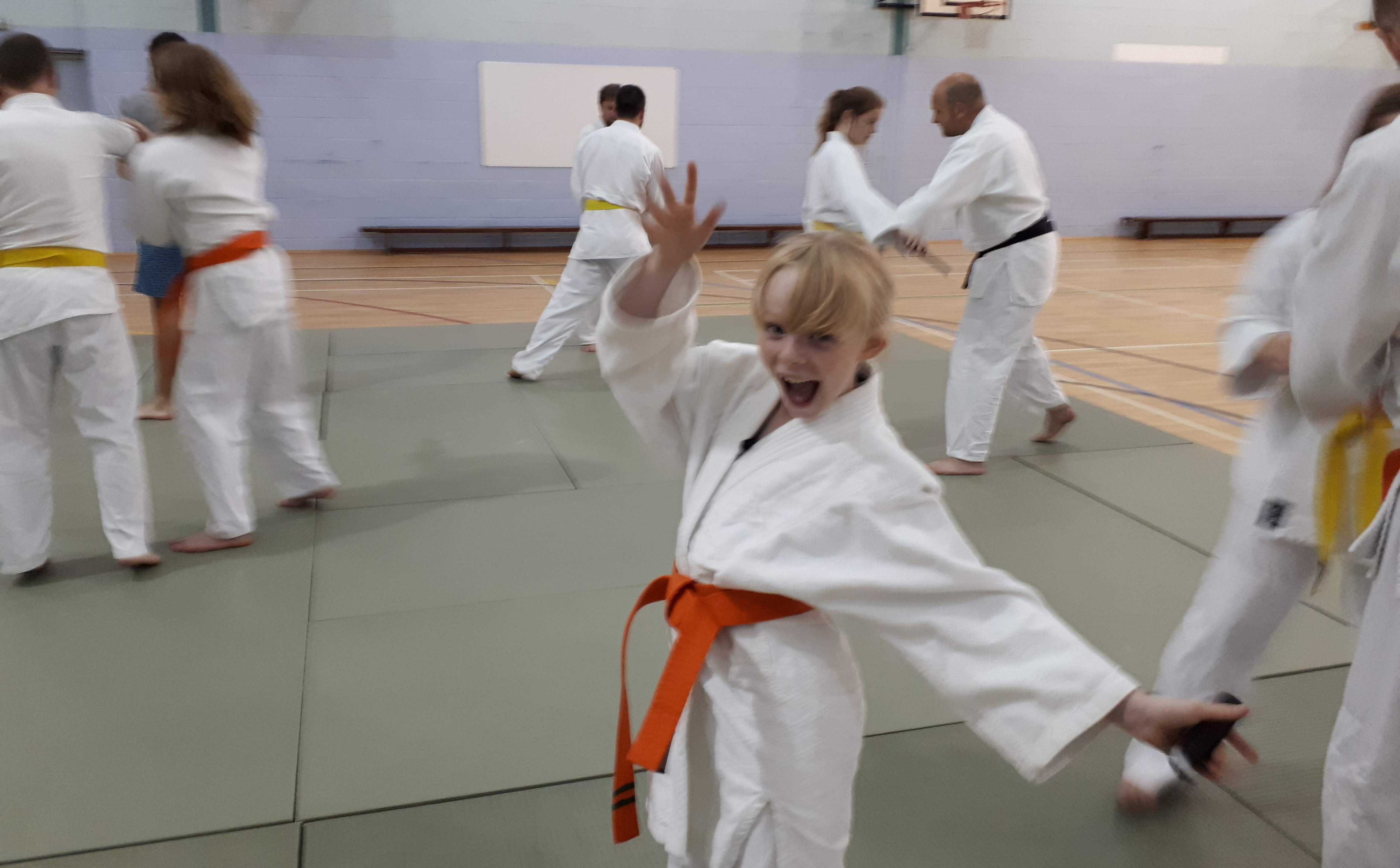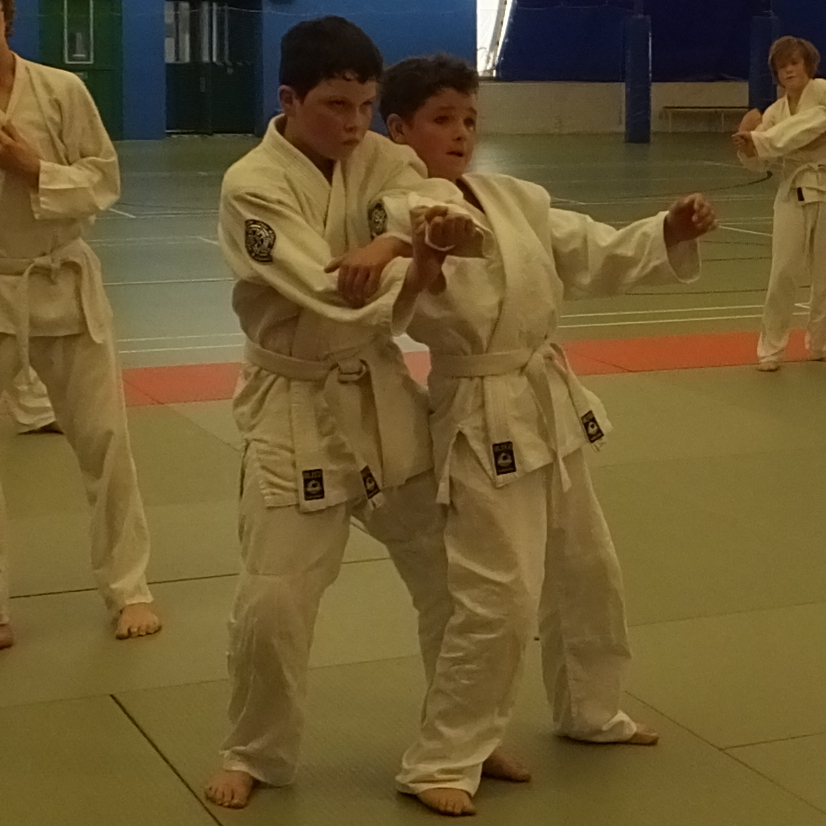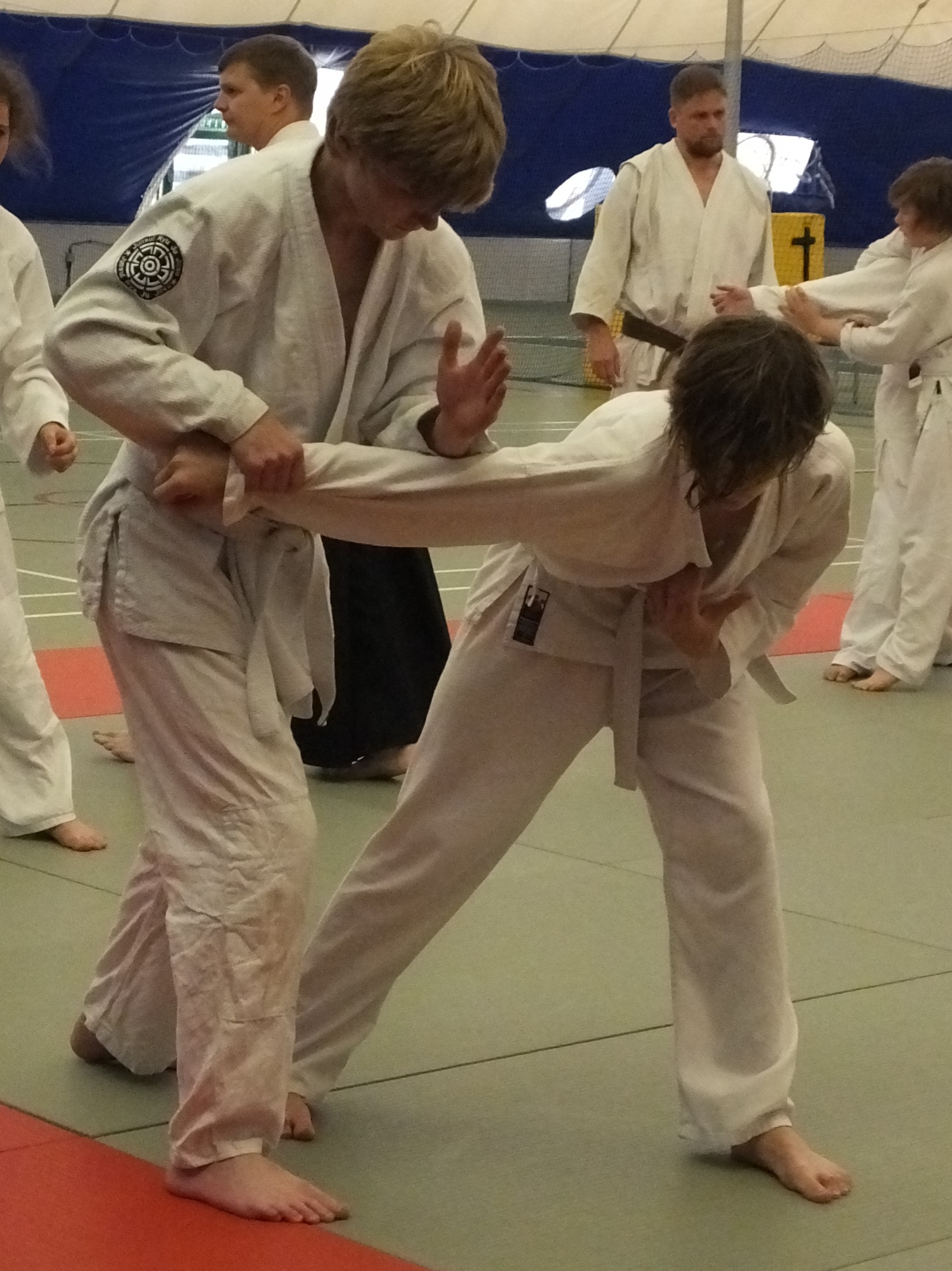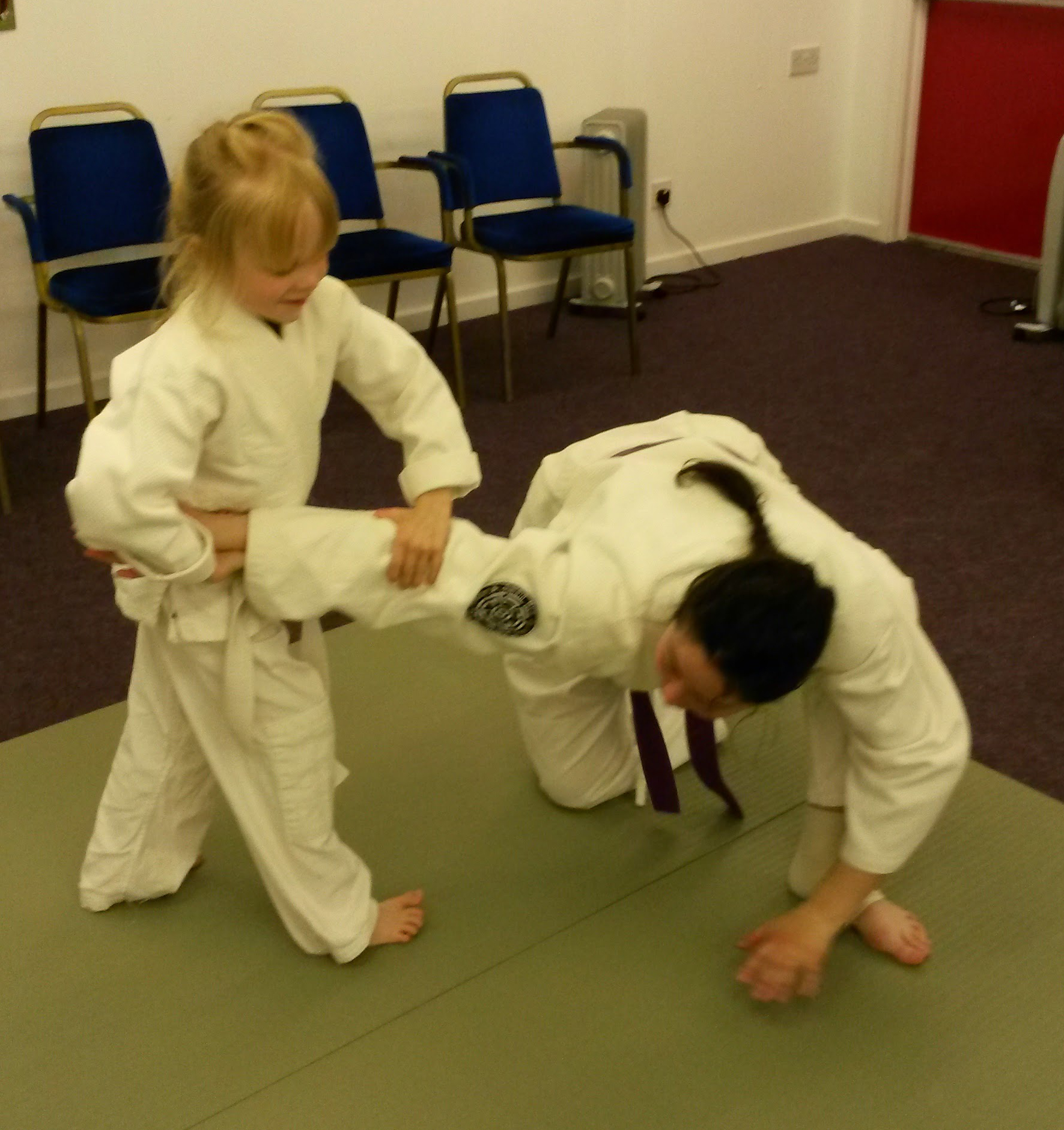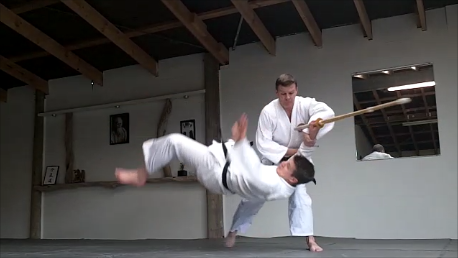Junior Members
Benefits of Junior Jitsu
Junior Jitsu is fun, energetic, inspiring, disciplined, challenging and rewarding.
Self-Discipline
Juniors learn the importance of discipline and respect for both others and themselves. In the sessions, they will learn how to respect the rules of the Dojo (training room) – such as no swearing, spitting or teasing.
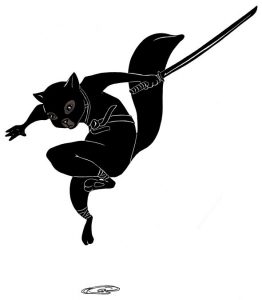
Preventing Bullying
A major benefit of Jitsu is learning to be more confident and to improve posture thus avoiding potential bullying issues.
In training, Juniors learn how to defuse conflict and are advised to inform an adult or teacher about any incident. It is also made clear that there is no shame in doing so. Juniors are taught that violence is not an appropriate response to feeling threatened or bullied.
Training in Junsui Ryu Ju Jitsu teaches Juniors the importance of personal responsibility, and to respect others, leading to increased levels of self-esteem and confidence.
Life Skills
Jitsu provides an opportunity for young men and women to practice skills that will increase their performance in school activities as well as help them in later life.
Jitsu enhances communication skills, helps children interact with others and make new friends.
It teaches young men and women to take responsibility for their actions.
Through regular gradings and national courses, Jitsu can also help them to become more engaged and focused on goal setting and passing exams.
Some children can be labelled “hyperactive”, however training in Ju Jitsu provides a focused outlet for their abundant energy.
Juniors will attend first aid, assistant instructor and instructor courses. As part of this, they will each be asked to help and teach others.
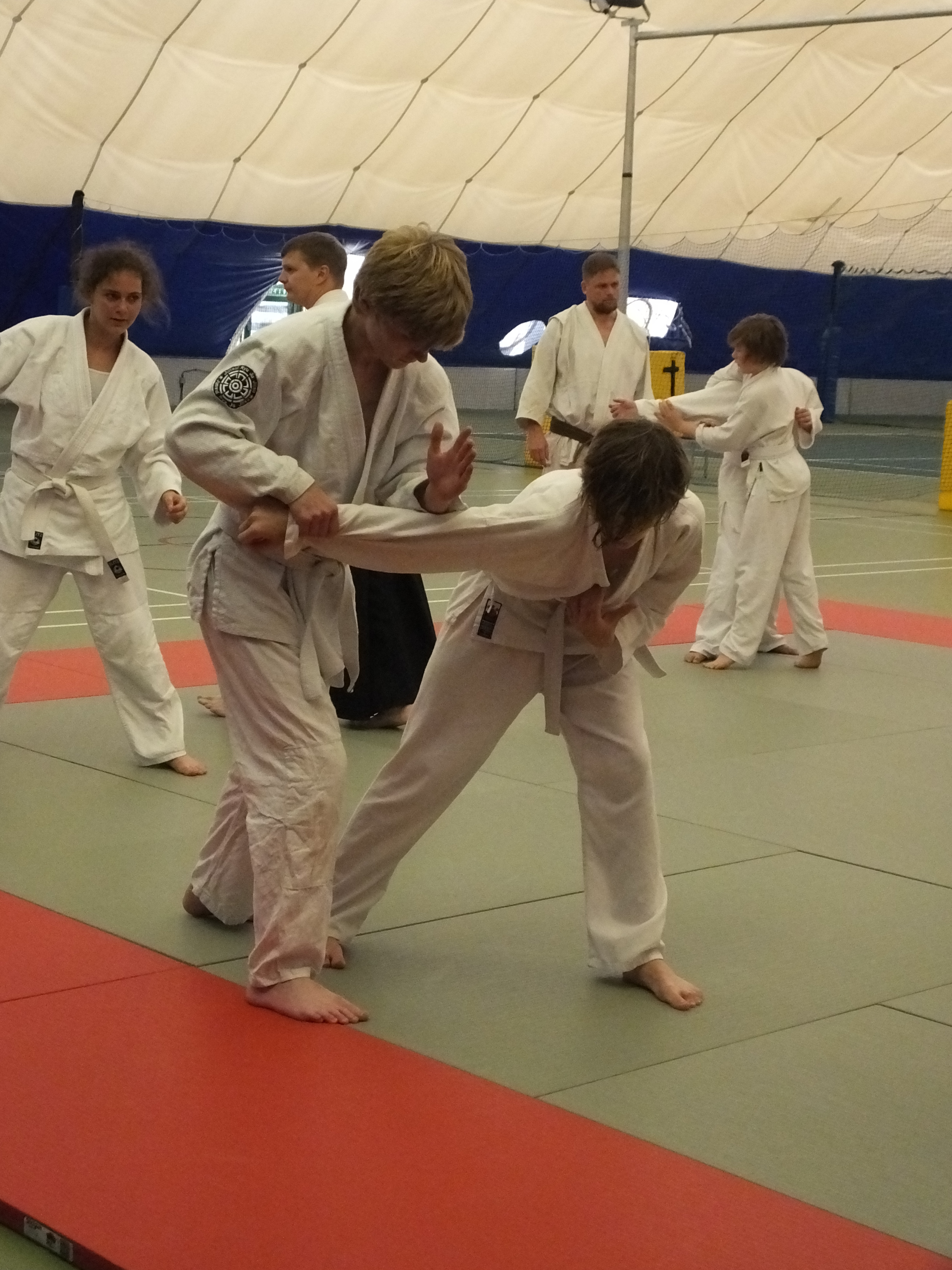
Self-Defence
We teach children how to avoid confrontation and stress that they must, under no circumstances, use Ju Jitsu inappropriately outside of the Dojo. As a style we emphasise that the skills taught are solely for use either in personal defence situations or in the defence of others. We emphasise that the use of Ju Jitsu should only be employed, as a last resort, in response to an extreme physical threat or assault.
Juniors are taught to defend themselves against a range of attacks including grabs, punches and kicks. In addition, defences against various weapons and multiple attackers are addressed.
All the learning is made fun, safe and memorable: you will see more aggression and injuries in a school football match then at a Jitsu class. Students learn to calm a situation down and how to avoid trouble.
Encourage Physical Fitness
As a nation, our children are spending less time exercising and increasing amounts of time playing video games, watching television and being in front of a computer. This is unfortunately reflected in a dramatic rise in childhood obesity and diabetes.
Jitsu can help improve cardiovascular endurance, flexibility, balance, strength and overall energy levels.
